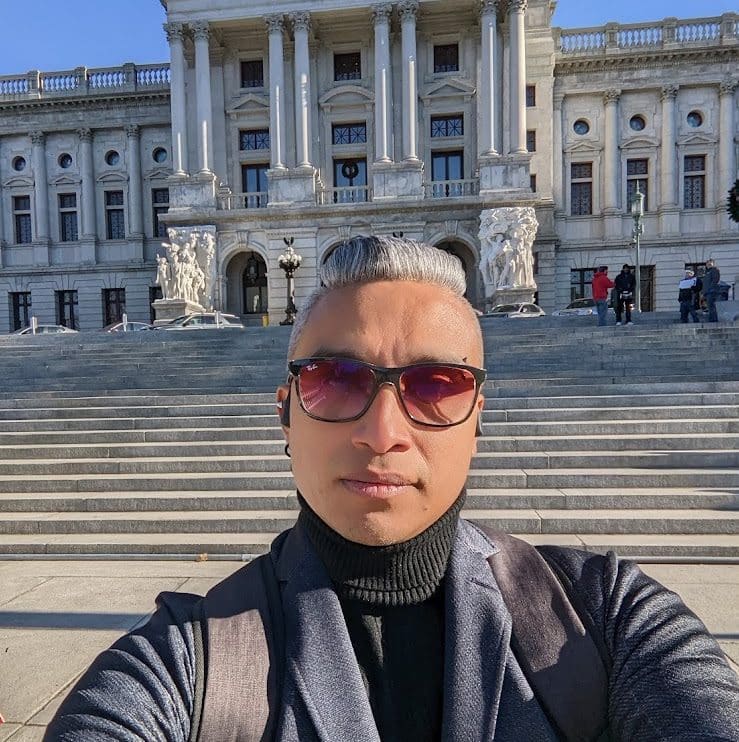#TimeToCare: Navigating Distance and Duty

By Luis Larin, Digital Organizer
“Ring me ASAP.” Even amidst her wedding plans, my sister’s four words hit me like a freight train. Followed by that feeling that my stomach just sunk.
My family lives in Guatemala, which always gives me this powerless feeling. My sister, whose voice is a blend of fear and strength, gives me an update during a call. Our mom needs surgery, and it needs to happen now. Mom is already in the hospital, and at this point, it is not about options; it is about what we will do. After exchanging comforting words, we hung up, armed with tasks to be accomplished. The news of our mom’s hospitalization anchors my heart and my sister’s into a sea of worry and duty.
At just 13, my mom handed me the mantle of caregiving. My baby sister, just two months old, was placed in my arms each day as mom, heart splintering, left for work. That goodbye, which blends love, worry, and distance, still haunts me today, especially in moments like these.
Being a Latine, an immigrant, and living as a cisgender man without the ‘usual’ family responsibilities – the experience is a coin of two halves. There’s a sort of freedom that comes with it, but also a weight. A weight of quiet, often unseen duties understood only by those who’ve walked similar paths.
I grew up in a world where rest wasn’t just undervalued but almost scorned. Folks around me would say, “30 years of work and not a single day off, even when feverish,” wearing it like a badge of honor. It was all about laboring, almost until you’d break. I haven’t totally broken this belief and often find myself in need of reminding myself that I, too, need #TimeToCare
See, I can’t do this alone. The pressure, the weight – it’s too much. My first call is to my extended family here in the States. Next, I message my work, asking for a day or two to be mentally and emotionally there for my family.
This support and network of folks who get it is vital. It proves that #TimeToCare isn’t just some “privilege” but a basic human right that everyone, irrespective of their social or relational status, should inherently have… It’s a scream into the storm of many others experiencing the same while hiding behind the mask of being productive.
Days later, a videocall—not a text, but a videocall—from the hospital displayed my mom, recovering with a smile that looked like the biggest she’s ever had! She’s reassuring us that everything will be alright. As a reminder of those patterns that need to be broken, my mom’s first question was if I was working and if it was a good time to talk. Disassembling the notion that work trumps life fuels my daily commitment to fight for #TimeToCare.
#TimeToCare is a chord that plays through all our lives, binding our narratives as immigrants, workers, and loved ones. It isn’t just for parents, nor only for breadwinners. It’s for everyone, every narrative, every soul, every necessity.
While my immigrant story might not be unique, it’s deeply mine. And it’s one of the million stories of people who need #TimeToCare and do not always have access to it. My experience is a thread in the woven tapestry of collective existence and collective care, where each strand is a tale, a trial, a triumph.
Now, more than ever, I’m locked into this movement, this struggle, to ensure we all can access #TimeToCare.